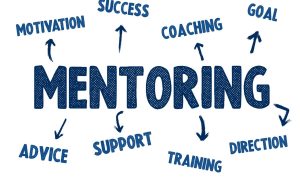Silence is far more than the absence of sound. It can either soothe or unsettle, depending on one’s emotional state. Think of moments when you sat in a quiet room. Did it calm you or stir unease? Understanding how silence affects your emotions is essential, especially in a world filled with constant noise.
In this article, we’ll explore silence from multiple angles—its beauty, its discomfort, its role in relationships, and its cultural weight. You’ll see why some people crave it while others avoid it like the plague. By the end, you’ll know how silence can be a powerful tool for emotional clarity.
The Inner Symphony
Inside each person is an ongoing internal conversation. Silence amplifies that voice. When external distractions fade, thoughts, fears, and desires surface more clearly. Some people find this empowering, as it provides space for self-reflection. Others feel overwhelmed when silence shines a spotlight on emotions they’ve long avoided.
Research in psychology shows that the brain never really rests. Even in silence, the mind runs its “default mode network,” which is tied to self-reflection and memory. In other words, silence doesn’t empty your mind—it reveals what’s already happening inside. That’s why sitting quietly can sometimes feel louder than any noise outside.
Embracing the Stillness

Learning to embrace silence is like building a muscle. At first, it may feel uncomfortable. Over time, however, you discover its strength. Moments of stillness allow the nervous system to reset and recharge. Heart rate lowers, stress hormones drop, and clarity emerges.
A study by the journal Heart showed that two minutes of silence reduced blood pressure more effectively than relaxing music. That insight highlights silence as a genuine healing force. It’s not about emptying your mind but about giving it a chance to breathe. Embracing silence creates emotional room for new perspectives and deeper understanding.
The Healing Power of Quiet Contemplation
Quiet contemplation provides the ideal backdrop for healing. Think of monasteries or retreats where silence is central. These environments allow individuals to release daily pressures and look inward without interruption. Many people report breakthroughs during such quiet periods—whether spiritual insight, emotional release, or creative ideas.
Take the story of a busy executive who attended a silent retreat in California. After years of non-stop meetings, emails, and phone calls, she found the quiet almost unbearable at first. By the third day, though, she described it as the “deepest mental detox” of her life. That’s the power of silence: it forces you to confront what you’ve been pushing aside.
The Shadows of Silence
Silence isn’t always golden. Sometimes, it creates discomfort or even emotional strain. When silence feels imposed rather than chosen, it can weigh heavily on your mental state.
Psychologists often note that forced silence—like the silent treatment—can be deeply damaging in relationships. It leaves the affected person feeling invisible, unworthy, or emotionally starved. This darker side of silence reminds us that context matters.
The Discomfort of Internal Noise
When silence removes external distractions, internal noise can rush in. Anxiety, unresolved conflicts, and lingering doubts grow louder. Some people avoid silence because it feels like opening the floodgates of suppressed emotions.
For instance, someone grieving may find silence unbearable because it magnifies the absence of their loved one. Instead of peace, they experience silence as a painful reminder. That’s why not all silence is therapeutic. Sometimes it requires guidance, structure, or support to become helpful rather than harmful.
Silence as a Form of Emotional Withholding
In relationships, silence can become a weapon. Instead of talking things through, one partner may shut down. This form of emotional withholding damages trust. It’s not just about the absence of words—it’s about the lack of connection.
Studies on communication breakdowns show that couples who use silence as punishment often struggle with long-term satisfaction. Words may be sharp, but silence can cut even deeper because it denies resolution. Healthy silence means creating space for calm reflection, not building walls between people.
Social and Cultural Dimensions of Silence
Silence doesn’t carry the same meaning everywhere. In Japan, silence often signals respect and thoughtfulness. In contrast, in many Western cultures, silence during conversation can feel awkward or even suspicious.
Business negotiations highlight these differences. A Japanese executive may pause silently to reflect before responding, while an American counterpart may misinterpret that as hesitation or lack of interest. Cultural context influences how silence affects emotions, rendering it either soothing or stressful, depending on one’s surroundings.
Think of the “silent minute” in global ceremonies. Shared silence has the power to unify communities and nations. It speaks louder than words when honoring loss or showing solidarity.
Silence in relationships is tricky. Sometimes it creates intimacy. Couples who can sit quietly together without discomfort often show deep trust. Other times, it creates distance when one partner feels ignored or dismissed.
The difference lies in intent. Intentional silence says, “I’m here with you, even without words.” Unintentional silence may suggest detachment. Learning to read these cues can save relationships from unnecessary conflict.
If you’ve ever experienced a long car ride with someone you love, you know the power of comfortable silence. No need for constant chatter—the connection speaks for itself.
Practical Pathways to Emotional Serenity Through Silence

Silence can be integrated into daily life without feeling forced. Small practices can transform silence from something to be avoided into something to be cherished.
Integrating Intentional Silence into Daily Life
Start with short, intentional breaks. Turn off your phone for five minutes. Sit in your living room with no TV or music. Pay attention to how your body responds.
Journaling after a quiet moment can deepen the effect. It captures thoughts before they slip away. Over time, these small doses of silence build resilience and calm.
Consider adding mindful practices. Yoga, meditation, or simply walking without headphones all create silent spaces for emotional reset. These practices aren’t about escaping the world—they’re about recharging so you can return with clarity.
Conclusion
Silence is complex. It can soothe, heal, or hurt depending on how it’s used. When embraced intentionally, silence becomes a powerful ally for emotional well-being. When imposed or weaponized, it creates disconnection and discomfort.
The key lies in awareness. Ask yourself: Am I using silence to heal or to hide? Answering that question shapes how silence will ultimately affect your feelings.
FAQs
Silence highlights your inner world, which can lead to peace, clarity, or discomfort depending on your mindset.
No. Silence can be healing, but when used as a form of punishment, it becomes emotionally harmful.
Yes, when it’s shared intentionally. Silence creates intimacy when both people feel secure.
Because silence often exposes internal conflicts or emotions they’d rather avoid.
Start small with mindful breaks, journaling, or walks without distractions.





